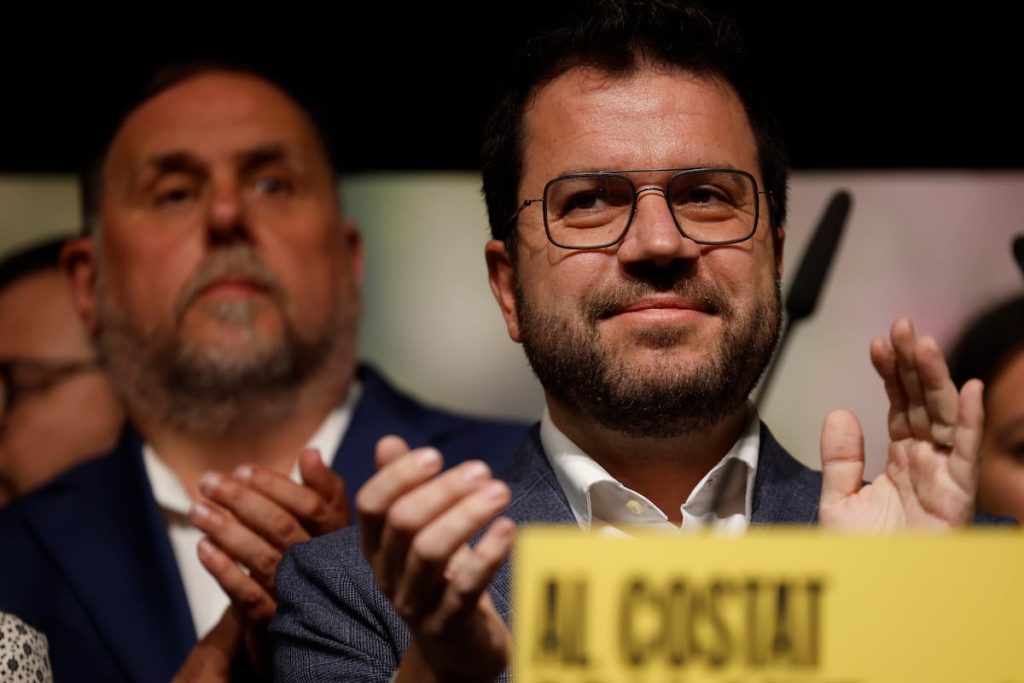ERC is facing the consequences of its ambiguous stance on independence in Catalonia, with the possibility of supporting a tripartite government led by the PSC. The party, which presented itself as the “sensible independence movement” and distanced itself from Carles Puigdemont’s actions, is now torn between supporting the PSC or opting for new elections. Junqueras, the leader of ERC, has been portrayed as a moral leader by the Spanish public due to his imprisonment, which some see as opportunistic. The division within ERC between those willing to support the PSC and those hesitant to break ties with Puigdemont is evident, with the need for time to decide the party’s future direction.
Some voices within ERC are advocating for allowing Salvador Illa to become president and then act as a constructive opposition. However, the party has historically leaned more towards left-wing ideologies rather than strict independence, leading to internal divisions over the best course of action. While some fear that Junqueras’ return may aim to force new elections, others see it as an opportunity for him to distance himself from the party’s recent electoral losses. The structural crisis faced by the independence movement, with disillusioned voters turning away due to leadership failures and perceived betrayal, further complicates ERC’s dilemma.
The shift in support towards Puigdemont and Junts is partly attributed to ERC’s focus on pragmatic negotiations and dialogue, which may have alienated the more radical elements of the independence movement. The perception that Puigdemont is more assertive and capable of standing up to the PSOE in defense of Catalonia’s interests has led to ERC losing ground. While ERC may adjust its strategy to be less accommodating towards the PSOE, it remains to be seen whether this will resonate with voters or further weaken the party’s position. The challenge for Junqueras and ERC lies in resolving the party’s internal divisions and deciding on a coherent path forward.
The disillusionment among independence supporters, who feel abandoned by their leaders and frustrated with the focus on legal maneuvers and concessions in Madrid, has fueled the decline of ERC and other pro-independence parties. The failure to deliver on promises of change and progress towards independence has left voters feeling betrayed and unrepresented. In this context, the prospect of repeating elections risks further polarization between the PSC and Junts, potentially causing more damage to ERC. The party’s future hinges on its ability to address these grievances and redefine its role within the independence movement.
The challenge for ERC lies in navigating the complex dynamics of Catalan politics and reconciling its divergent factions to present a united front. Junqueras’ leadership and the party’s strategic decisions will determine its future trajectory and ability to regain voter support. The need for clarity, consistency, and a coherent vision for Catalonia’s future independence movement is essential for ERC to overcome its current challenges and rebuild trust among disillusioned voters. Only by addressing these fundamental issues can ERC hope to regain its standing and contribute meaningfully to the political landscape in Catalonia.


